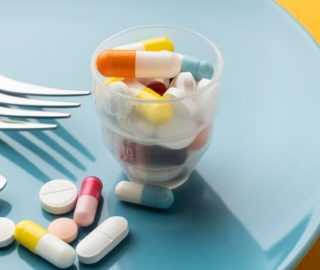For centuries, mankind has been consuming stimulants in various forms. The most notable of these is coffee. Harmless, right? Maybe not. Unfortunately for some, readily-available, mass-marketed stimulants such as caffeinated beverages can be immediately harmful to the recovery of those with a stimulant abuse problem. But there is no need to lose hope. There is a treatment for a stimulant addiction for everyone that can put you back on the track you belong on.
Stimulants Abuse & Addiction Rehab


Stimulants Addiction
Getting Treatment for a Stimulant Abuse Problem
Thankfully, research has been done on recognizing the signs of drug addiction and abuse. There is a wealth of resources and educational materials to aid families and individuals in their recovery from stimulant addiction, and there are supportive, healthy environments for help and getting treatment for a stimulant abuse problem.
How addictive are stimulants?
Stimulants, whether legal or illegal, can become addictive. What makes a stimulant addiction difficult to stop are the withdrawal effects.
Stimulants are often referred to as ‘uppers’ because of the effect they have on the individual.
The person taking the drug becomes alert and energetic. They may feel invincible. They may even confuse the effects of the drug with ‘happiness.’
On the withdrawal side of a stimulant addiction, the person experiences a crash. Depression may result. Energy levels plummet. More unpleasant physical side-effects take place, such as nausea, vomiting, and sleep disturbances. In some cases, very serious medical issues can arise.
For most of the people suffering from a stimulant addiction, the effects of withdrawal can be unbearable. The path to quitting a stimulant abuse problem and starting on the path to recovery must be taken in a controlled, supportive environment so the individual may successfully end their addiction.
What are the signs of addiction?
There are many overarching signs of drug addiction and several specific to stimulant addiction.
For example:
- The individual cannot stop thinking about when to get their next hit of the drug.
- They engage in risky behavior to obtain the drug, such as stealing money from a friend or relative, or even stealing a legal prescription from a friend or relative.
- The individual begins to experience financial difficulties related to purchasing the drug.
- For stimulant addiction specifically, friends and family may notice the individual is not sleeping as much or as regularly as they normally would.
- The individual stops participating in self-care routines, such as showering or eating regularly.
- Specific to stimulant addiction, the individual may start to speak rapidly, or jump from one idea to the next.
- Career or school and family relations begin to suffer.
- Legal problems may occur.
What are the health concerns of prolonged use?
A stimulant addiction can produce many serious, short-term and long-term effects on the body, including but not limited to:
What are the dangers of mixing stimulants with alcohol?
If the consumption of alcohol is not managed properly, dangerous, serious side-effects can occur. Mixing alcohol with stimulants is even more dangerous and the potential for harm even greater. Stimulants mixed with alcohol can cause the user to become more quickly impaired.
Alcohol is considered a depressant or a ‘downer,’ whereas stimulants are an ‘upper.’ When taken together, the effects of the alcohol become masked to the user. This can and usually does cause the user to consume more alcohol. The consequences of this can be deadly:
- Blackouts
- Significant mental and physical impairment
- Death
Can you overdose on a stimulant?
It is absolutely possible to overdose on a stimulant or any dangerous, powerful drug. When an individual consumes more than the prescribed amount of a legal stimulant or more than their body is accustomed to with an illegal stimulant, an overdose occurs. Some of the signs of a stimulant overdose are:
Death may result if the individual experiences an irregular heartbeat, which can lead to a heart attack. Problems with blood pressure can also result in heart failure.
Drug abuse is dangerous for the individual and tragic for his family and loved ones. The end result can often lead to death. Stimulant addiction, even if the drug of choice for the user is a legal prescription, is no less dangerous.
Armed with government-backed research, information such as the above can help individuals, families, and healthcare workers recognize the signs of stimulant addiction.
Getting treatment for a stimulant addiction need not be impossible. There are many resources and facilities that help individuals recover from drug and alcohol abuse. If treated in a supportive environment, an individual can make a full recovery from stimulant addiction, and begin the road to healing and personal well-being.
Get Treatment for a Stimulant Addiction and So Much More
Stimulants as common as coffee or caffeinated soft drinks seem to be harmless enough. What’s less obvious is how to quit taking stimulants when it has resulted in an even more critical abuse of drugs and/or alcohol. Because Windward Way’s program for addiction treatment treats each person as a complicated unique whole, the treatment modalities we use can furnish you with the answers to your questions you’ve been searching for.
If you want to end an addiction to stimulants, but haven’t found the tools to address all the other problems you have, we’re here to serve you. We will stand beside you, every step of the way as you learn how to live on your own without the need for mind-altering drugs or alcohol. We’re here to listen, right now: (949) 749-3522.
The Adventure of Recovery, the Windward Way
When people discover they’re not only addicted to stimulants, but also battling a heroin, MDMA (ecstasy), amphetamine, or another substance-use disorder, Windward Way delivers in our promise to help them find the long-term recovery they deserve. Both our drug treatment and also alcohol rehab has been created to bring lifelong recovery to the clientele we serve.
Your new adventure is about to begin. As soon as you reach out, we can share how Windward Way is just the program of recovery specifically made to give people an exciting new start. Here’s the number to dial to begin your new start: (949) 749-3522.




